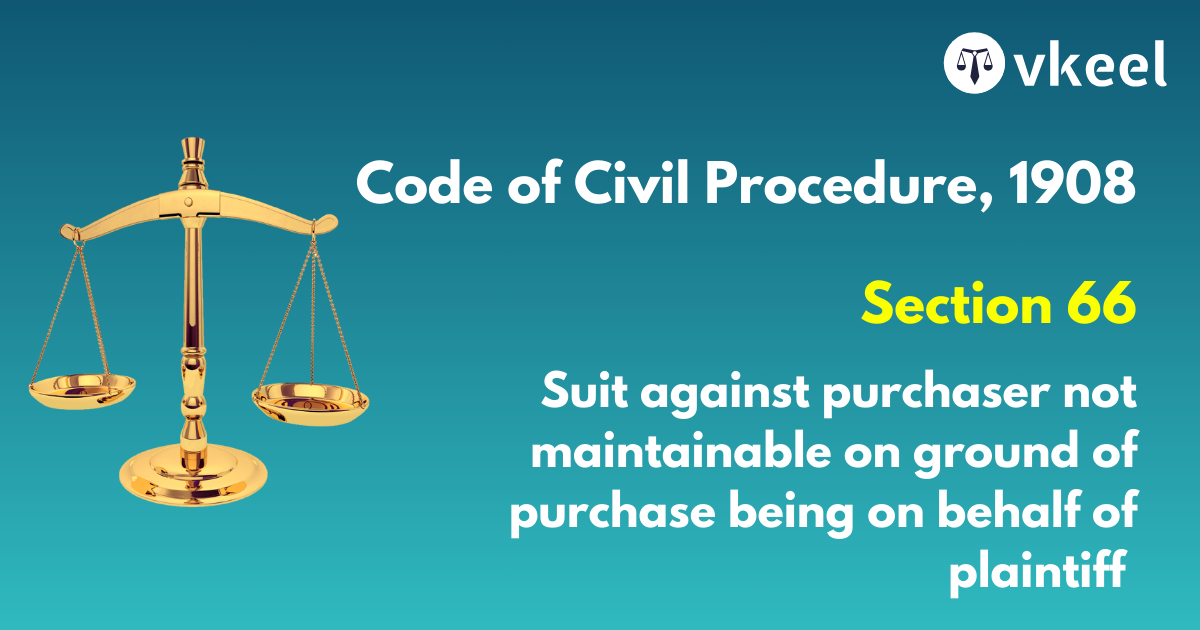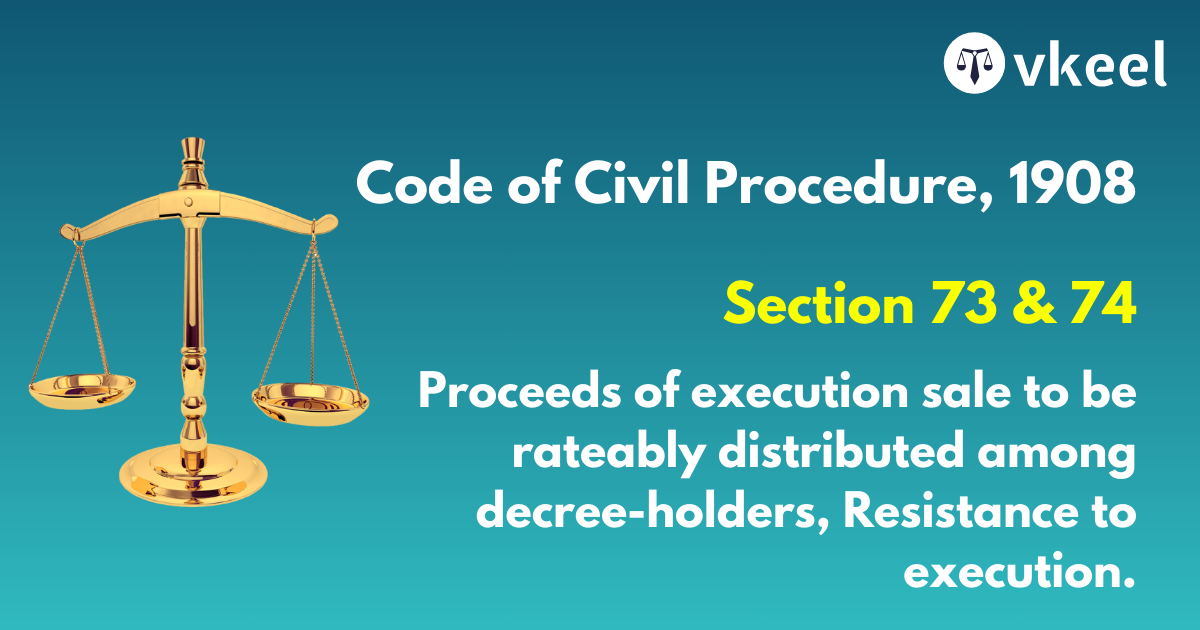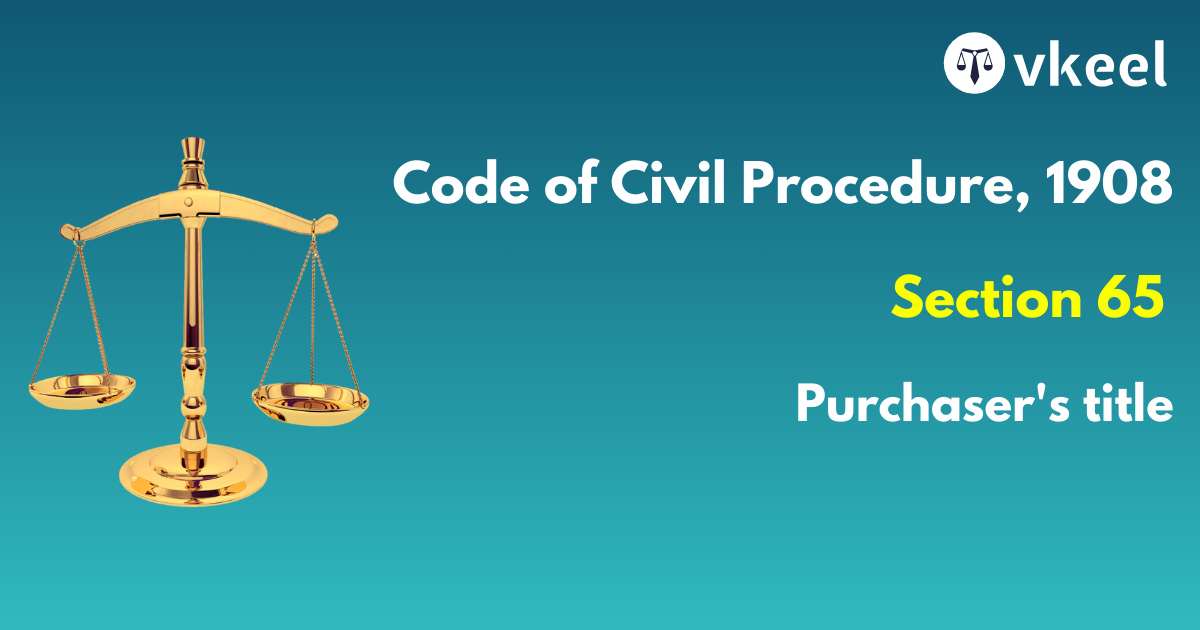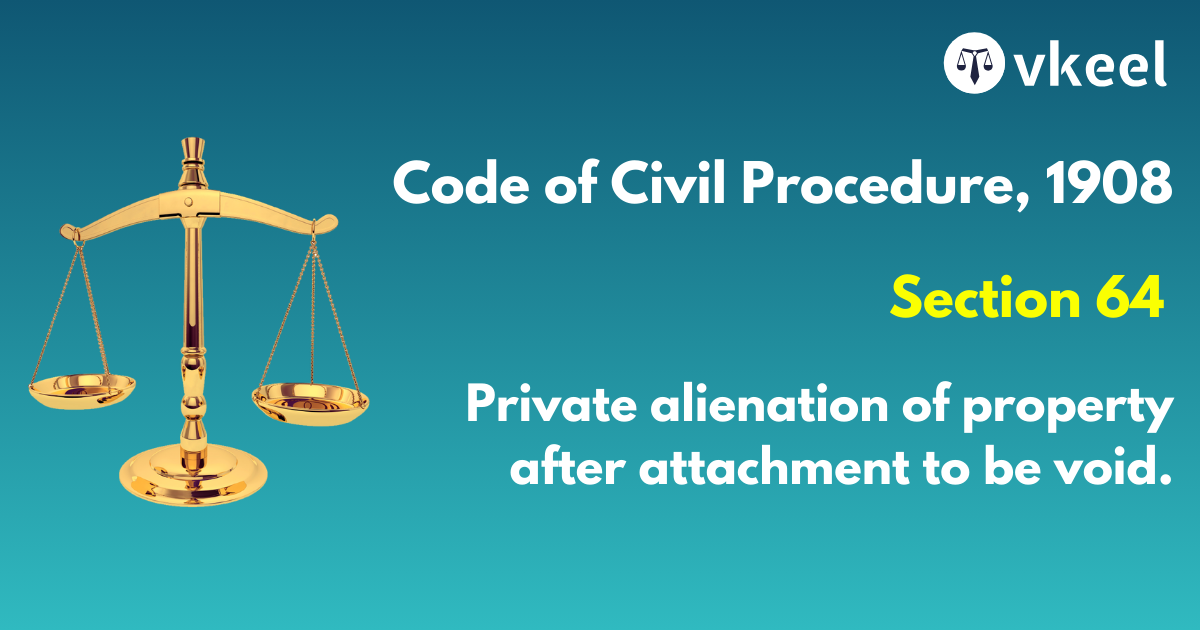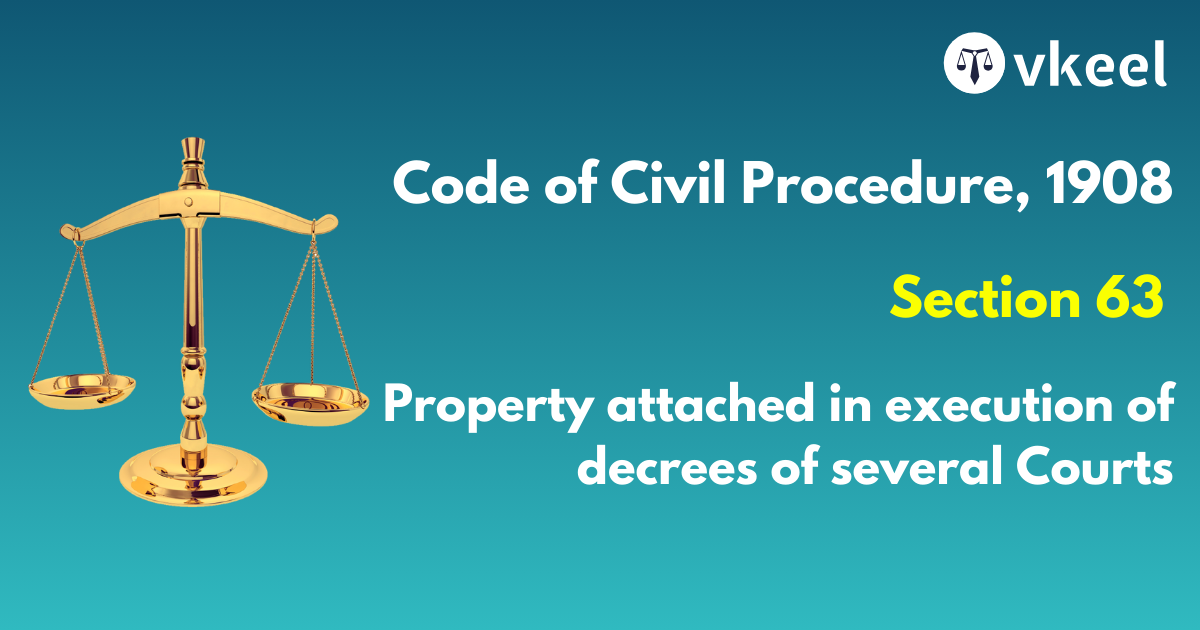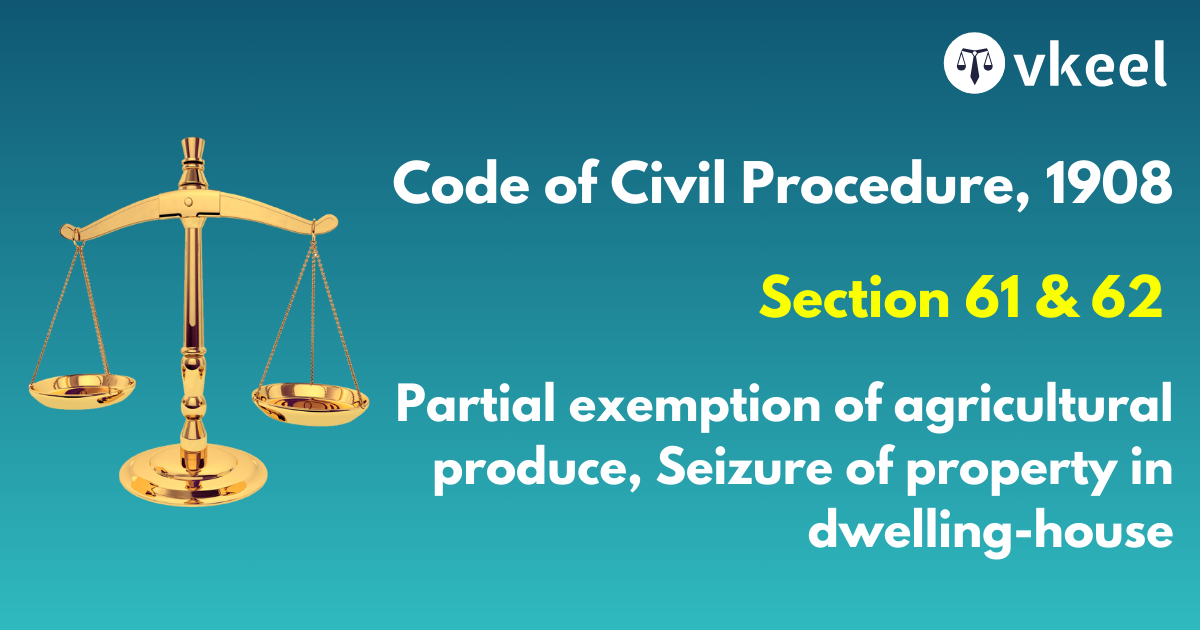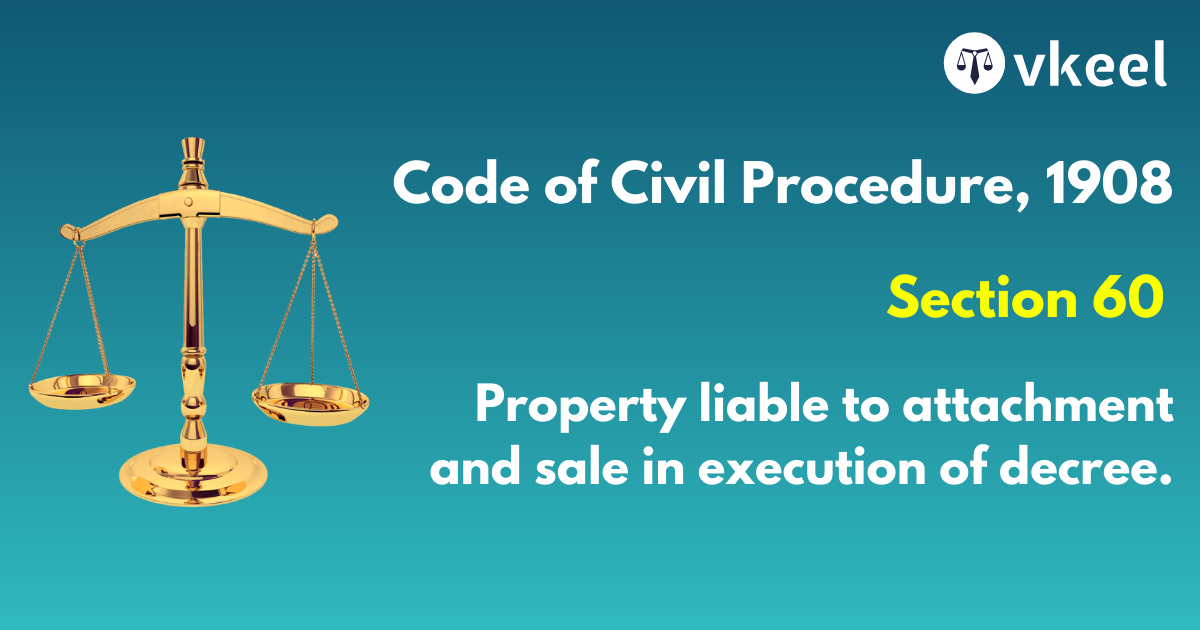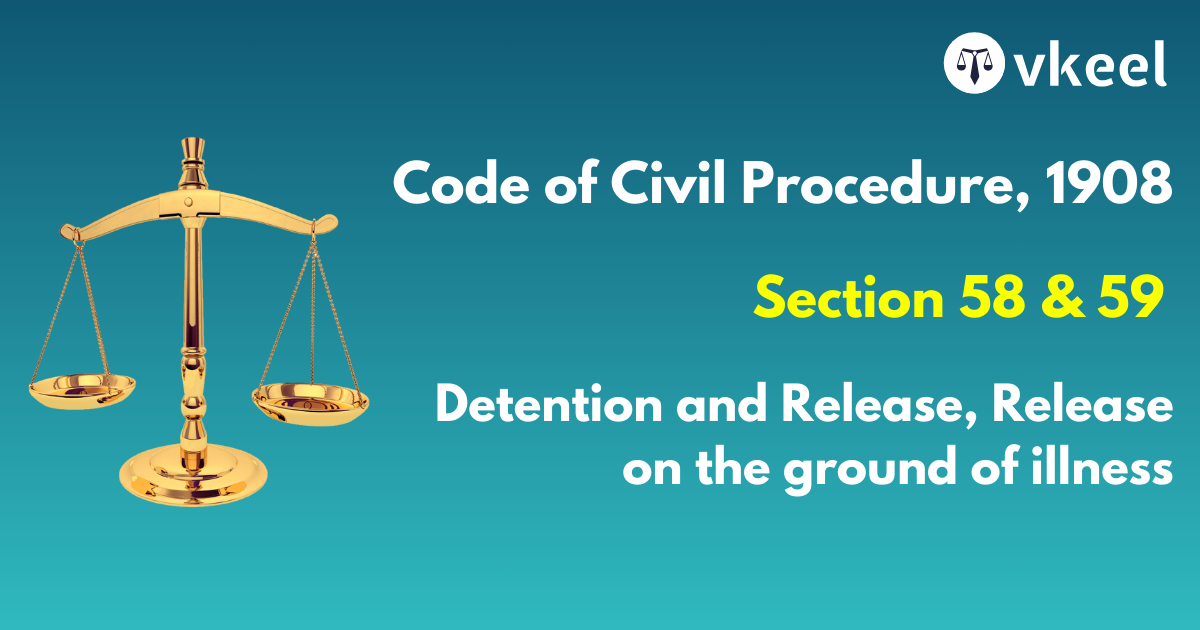Section 66 of the Code of Civil Procedure, 1908
By Joy Puri
Introduction
The Section 66 of the Code of Civil Procedure, 1908 recites about the protection of the purchaser in the case of a sale in execution of a decree.
It further in its verbiage opines that it prohibits a judgment debtor or any other person claiming through them from asserting that the property sold in execution was not actually theirs at the time of the sale.
Section 66 of the Code of Civil Procedure, 1908
The present section had been repealed by the Benami Transactions (Prohibition) Act, 1988 w.e.f 19-05-1988)
Suit against purchaser not maintainable on ground of purchase being on behalf of plaintiff
(1) No suit shall be maintained against any person claiming title under a purchase certified by the Court in such manner as may be prescribed on the ground that the purchase was made on behalf of the plaintiff or on behalf of some one through whom the plaintiff claims, and in any suit by a person claiming title under a purchase so certified, the defendant shall not be allowed to plead that the purchase was made on his behalf or on behalf of someone through whom the defendant claims.
(2) Nothing in this section shall bar a suit to obtain a declaration that the name of any purchaser certified as aforesaid was inserted in the certificate fraudulently or without the consent of the real purchaser, or interfere with the right of a third person to proceed against that property, though ostensibly sold to the certified purchaser, on the ground that it is liable to satisfy a claim of such third person against the real owner.
Landmark Case Laws
Nimalchand Vs Madan, 1952
Section 66 only applies where a plaintiff claims or asserts the beneficial title in himself and challenges the title of the defendants as merely benami by reason of a private understanding at the auction sale. It does not apply to cases where plaintiff admits the title of the defendant but claims possession by reason of an agreement with the auction-purchaser (before or after the auction) that he should transfer the property to him
Kotaiah Vs Venkata, 1962
Section 66 includes all categories of benami transactions, irrespective of the fact that the certified purchaser was the agent of the plaintiff even before the particular transaction took place unless saved by sub-section (2). Section 82 of the Trusts Act is comprehensive enough to include all sales of a benami nature and it leave unaffected the operation of section 66. Section 88 Trusts Act contemplates the buying of some property by one for himself by making use of his fiduciary position.
Arayamballi Vs AK Kunhappa, 1983
In view of the amendment made to section 66(1) by 1976 Amendment Act extending the provisions to defence also, where the real owner is in possession and the benamidar, whose name is entered in the sale certificate, sues for possession, the real owner would be now also debarred from raising a defence on the ground that the plaintiff was only a nominal purchaser, which he could raise and on which he could always resist such a suit for title and possession by the benamidar before the amendment in question. This change in law, though procedural, effected by the amendment, it may be pointed out, would operate harshly upon the substantive right of the real owner in possession to continue in possession resisting any attack upon his title and possession by benamidar. For many unscrupulous benamidars claiming title under execution purchase certified by court may now be tempted to sue for recovery of possession from the real owners, if real owners’ possession has not continued for more than 12 years giving the real owners an independent title apart from purchase in execution sale, and in the event of such suits being brought, real owners would have no defence. And what is worse is that even if such a suit for recovery of possession from the real owner by any unscrupulous banamidar is pending at the commencement of 1976 Amendment Act, the real owner will also have no such defence, by reason of section 97(2), of the Amendment Act of 1976 whereunder the provisions of section 66(1) as amended shall apply also to pending proceedings. Defendant precluded by amended section 66(ii) from putting forward plea of benami. Effect of section 97(3) and scope of section 97(2) of Amendment Act, 1976 discussed
Gorakhram Vs Laxmibai, 1953
The provisions of section 66 do not operate as a bar to a suit by the plaintiff against the certified purchasers when the latter purchased for themselves. The fact that they entered into an agreement with the plaintiff that when they purchased the property at the auction sale they would convey it to her is not material for the application under section 66. The plea of benami purchase in such a situation cannot be sustained
Thakur Vs Keshab, 42 Cal WN 497
If the relief is sought against a certified purchaser or his representative and the plaintiff claims title on the ground that the purchaser was the benamidar, the bar to suit cannot be got round by the mere fact that plaintiff once got possession and was subsequently dispossessed by the certified purchaser or his representative
Conclusion
To conclude, the aforementioned section of the Code of Civil Procedure is intended to safeguard the interests of bona fide purchasers by ensuring that they are not affected by false claims or disputes about ownership after the sale has taken place.
Therefore it clarifies that in a scenario wherein a property is sold under a court-ordered execution, the judgment debtor cannot later claim that the property did not belong to them in an attempt to invalidate the sale.
Disclaimer:
The information provided in the article is for general informational purposes only, and is not intended to constitute legal advice or to be relied upon as a substitute for legal advice. Furthermore, any information contained in the article is not guaranteed to be current, complete or accurate. If you require legal advice or representation, you should contact an attorney or law firm directly. We are not responsible for any damages resulting from any reliance on the content of this website.

